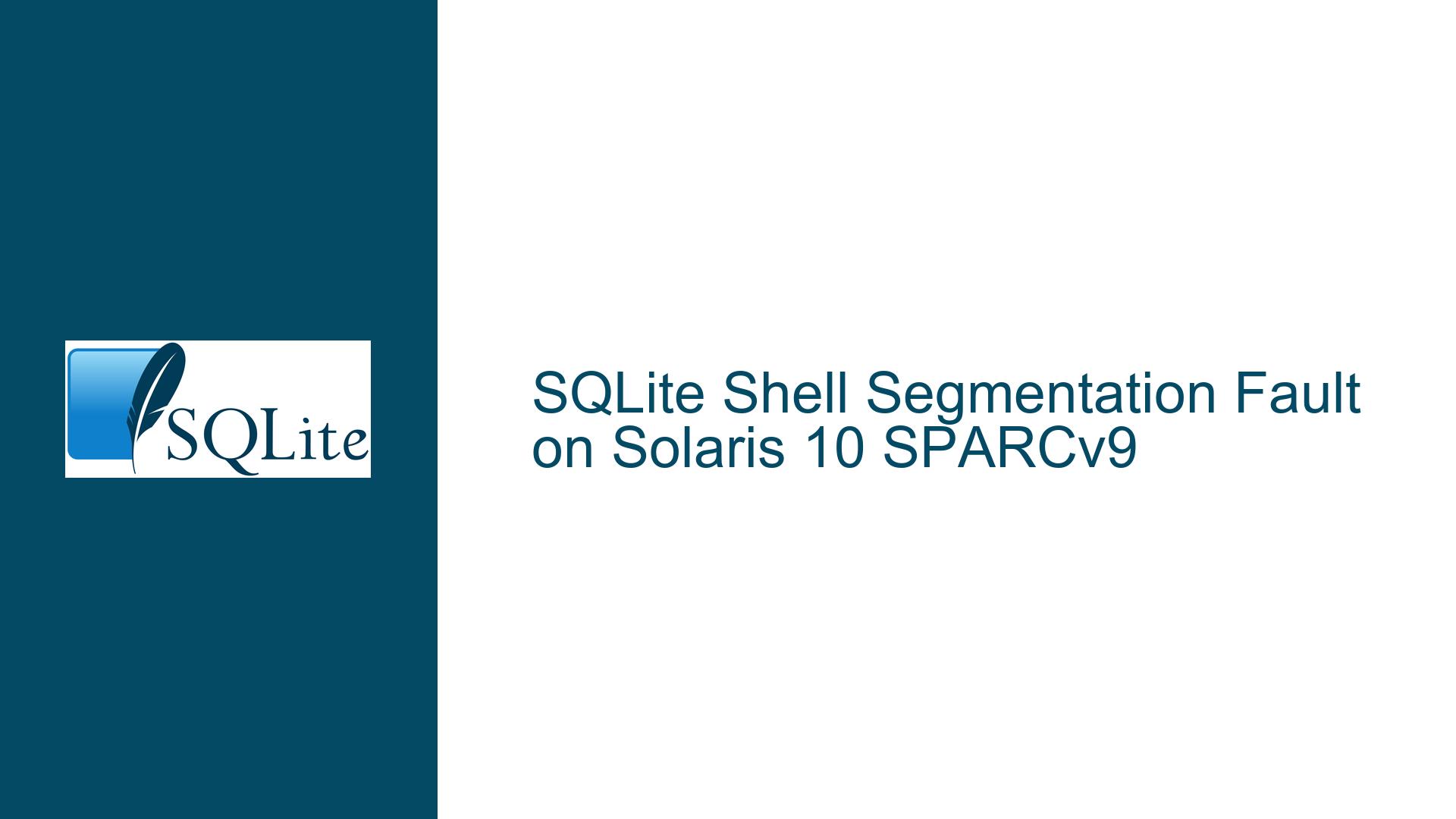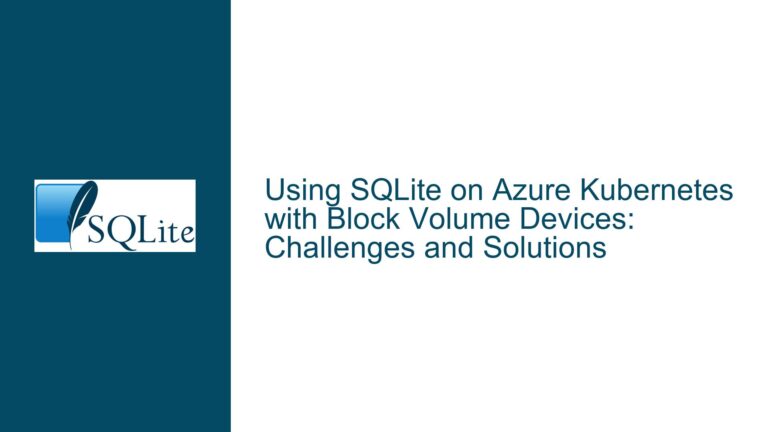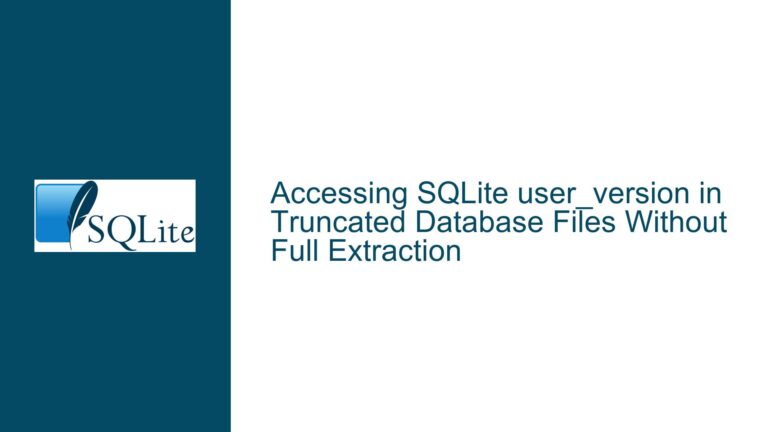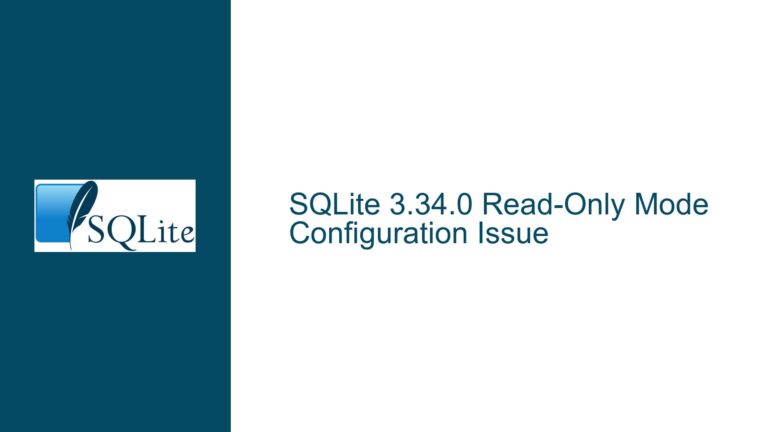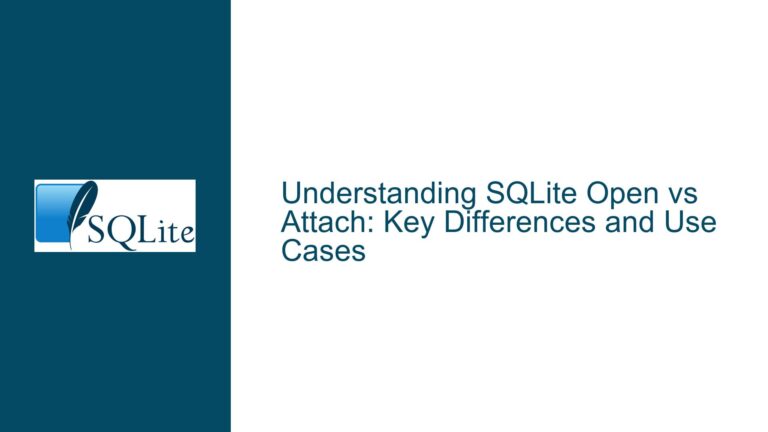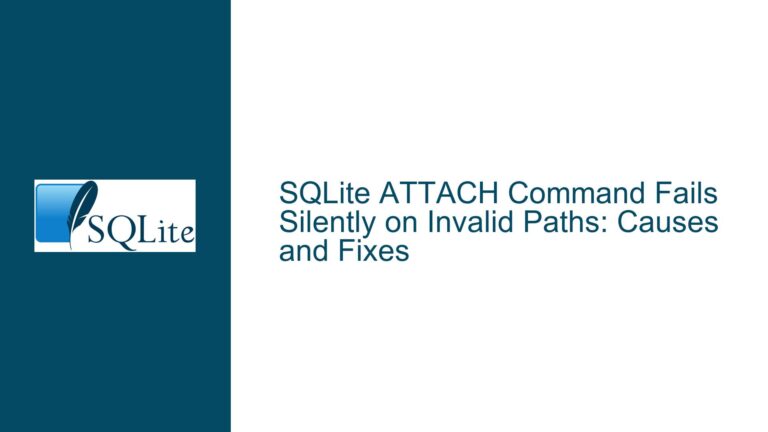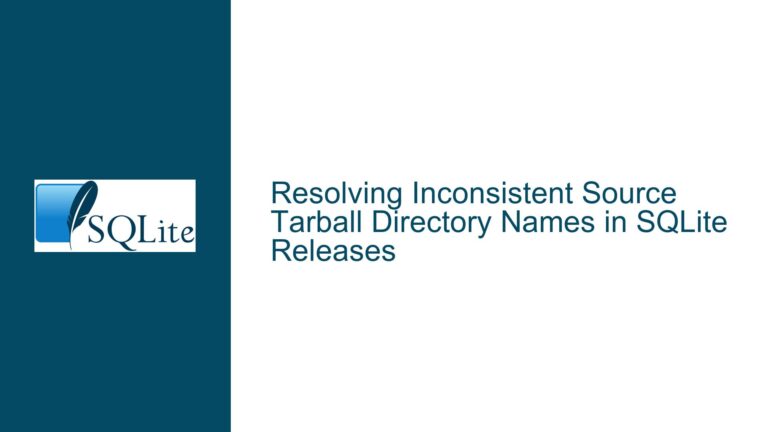SQLite Shell Segmentation Fault on Solaris 10 SPARCv9
SQLite Shell Segmentation Fault in Interactive Mode on Solaris 10 SPARCv9
The issue at hand involves a segmentation fault occurring in the SQLite shell (sqlite3) when running in interactive mode on a Solaris 10 SPARCv9 system. The segmentation fault is triggered during the initialization of the terminal I/O subsystem, specifically within the readline library. This fault results in the SQLite shell crashing before it can accept any user input, rendering the interactive mode unusable. The fault is particularly concerning because it occurs in a critical part of the shell’s initialization, suggesting a deeper incompatibility or misconfiguration between the SQLite shell, the readline library, and the Solaris 10 environment.
The segmentation fault is not a superficial issue; it is a critical failure that prevents the SQLite shell from functioning correctly in interactive mode. This mode is essential for users who rely on the SQLite shell for database management, debugging, and other interactive tasks. The fault occurs during the initialization of the terminal I/O subsystem, which is a fundamental part of the shell’s operation. This suggests that the issue is not merely a cosmetic or non-critical bug but rather a significant problem that could affect a wide range of users who depend on the SQLite shell for their daily tasks.
The fault is particularly perplexing because it does not occur in all environments. On other systems, such as Ubuntu, the SQLite shell runs without issue in interactive mode. This discrepancy suggests that the problem is specific to the Solaris 10 SPARCv9 environment, possibly due to differences in how the readline library is implemented or how the terminal I/O subsystem is configured on Solaris compared to other operating systems. This environment-specific nature of the issue makes it more challenging to diagnose and resolve, as it requires a deep understanding of both the SQLite shell and the Solaris operating system.
Interrupted Terminal I/O Initialization Due to tgetent Failure
The segmentation fault occurs during the initialization of the terminal I/O subsystem, specifically within the readline library. The fault is triggered by a call to the tgetent function, which is responsible for initializing the terminal capabilities database. The tgetent function is a standard part of the Unix terminal handling system, and it is used by the readline library to determine the capabilities of the terminal being used. In this case, the tgetent function is failing, leading to a segmentation fault.
The failure of the tgetent function is likely due to an incompatibility between the readline library and the Solaris 10 SPARCv9 environment. The tgetent function relies on the terminal capabilities database, which is typically stored in the termcap or terminfo database. If the readline library is unable to access or interpret this database correctly, it can lead to a segmentation fault. This could be due to a misconfiguration in the Solaris environment, a bug in the readline library, or an incompatibility between the readline library and the Solaris terminal handling system.
Another possible cause of the tgetent failure is a mismatch between the version of the readline library being used and the version expected by the SQLite shell. The SQLite shell is designed to work with a specific version of the readline library, and if a different version is installed on the system, it could lead to unexpected behavior. This is particularly relevant in the Solaris environment, where the readline library may be provided by a third-party package or compiled from source, leading to potential version mismatches.
The segmentation fault could also be caused by a bug in the readline library itself. The readline library is a complex piece of software that interacts with the terminal I/O subsystem in a variety of ways. If there is a bug in the library, it could lead to unexpected behavior, including segmentation faults. This is especially true in the Solaris environment, where the readline library may not be as well-tested as it is on other operating systems.
Diagnosing and Resolving the tgetent Segmentation Fault
To diagnose and resolve the segmentation fault in the SQLite shell on Solaris 10 SPARCv9, a systematic approach is required. The first step is to confirm that the readline library is correctly installed and configured on the system. This can be done by checking the version of the readline library and ensuring that it matches the version expected by the SQLite shell. If a different version is installed, it may be necessary to recompile the SQLite shell with the correct version of the readline library.
The next step is to verify that the terminal capabilities database is correctly configured on the Solaris system. This can be done by checking the TERM environment variable and ensuring that it is set to a valid terminal type. The TERM variable is used by the tgetent function to determine which terminal capabilities to load from the termcap or terminfo database. If the TERM variable is not set correctly, it could lead to a failure in the
